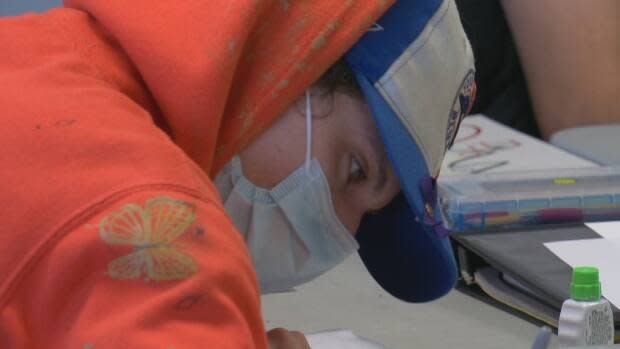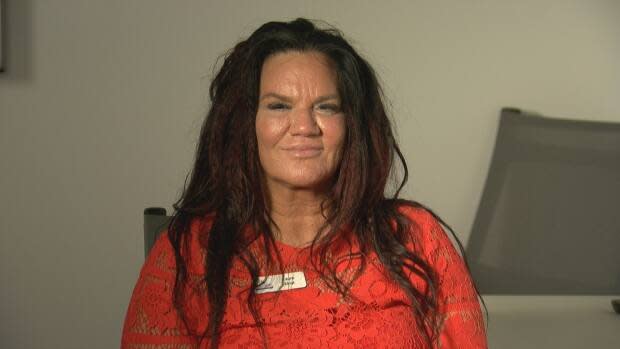New B.C. program offers help, and purpose, for male victims of violence and addiction

Josh Raine has come close to death from drug use.
It started in high school with alcohol. Raine partied and drank as a way to cope with trauma he had experienced as a youth.
Soon the alcohol was replaced with hard drugs.
"I found a really good escape in all of that," said the 20-year-old.
"I didn't have to confront my emotions or problems, I could just, you know, snort some molly [ecstasy, or MDMA] and float through the day and everything. Just nothing mattered."
But Raine overdosed not long after he began using hard drugs.
Raine said he realizes he easily could have become another statistic of B.C.'s years-long illicit drug overdose epidemic. But a moment of clarity helped him change.
"I learned the value of a life," he said. "We are all someone's daughter or son."
Raine said he decided to listen to the people who loved him and told him his life mattered.

His overdose came at a critical time in high school.
"I had two seizures and almost bit my tongue off right in front of my high school on exam day," he said.
Raine, who lives in Abbosford, stopped using drugs earlier this year and is now one of nine men in a new program funded by the province to help them move past their addictions and trauma and into long-term jobs in the construction industry.
"Honestly I've never seen a program that gave opportunities like this," said Raine. "I've never seen a program where I've actually been able to put something on my resume as a hireable person."
'Man up' attitude
The Purpose Project was devised by Laura Elout as a way to support victims of violence and trauma who, she says, don't often get the support they need.
"I recognized men often don't get services that they need when it comes to trauma or to intimate partner abuse or ... family relation abuse," said Elout, who works at the Kinghaven Treatment Centre in Abbotsford.

"Men are taught not to talk about it. Men are taught to just man up and get on with it and when men do that ... what happens is they cycle in and out of substance use. It becomes super problematic."
Men like Raine are the most common victims of B.C.'s opioid overdose epidemic, which, since being declared a public health emergency 2016, has claimed the lives of nearly 8,000 people.
In 2021, 72 per cent of those who died were aged 30 to 59, and 79 per cent were male.
B.C.'s chief coroner said this summer that drug toxicity is now the leading cause of death in B.C. for people between the ages of 19 and 39.
Elout has worked for 30 years helping vulnerable people find employment and has worked with Kinghaven since 2015.
She said that while drug treatment programs are helping people struggling with addiction, she wanted to help further by pairing counselling with job training, so that male survivors of violence could know they have a future with a job.
"I feel they are the most brave men," she said. "They are so brave because it takes such courage. It takes enormous courage for men to talk about sexual trauma or violence.
"I want men to know that there is hope. That they matter."
Elout and Kinghaven were able to secure $170,000 in funding for the Purpose Project through a pool of money the province earmarked for economic recovery.
'This is an opportunity'
Participants like Raine receive nine weeks of occupational and employability skills training, four weeks of on-the-job work experience and one week of followup support to assist in their job search.

He will be certified to handle hazardous waste on job sites, receive training to use machinery, and learn occupational first aid skills.
Participants will be paid $300 a week for the 14 weeks and employers are ready to take on people like Raine as soon as they finish the course.
"This is an opportunity to have a career," said Raine. "To do something for a period of time and not just a job."
Elout says the funding from the province is enough to pay for one cohort in the program. She hopes its success will translate into more funding and a way to expand the program across the Lower Mainland.
The province said in a release that the program is unique and comes at a time when job opportunities in the construction industry are growing.
"Participants will receive personal support, as well as the skills training they need to help find and keep well-paying jobs," said Nicholas Simons, minister of social development and poverty reduction.


